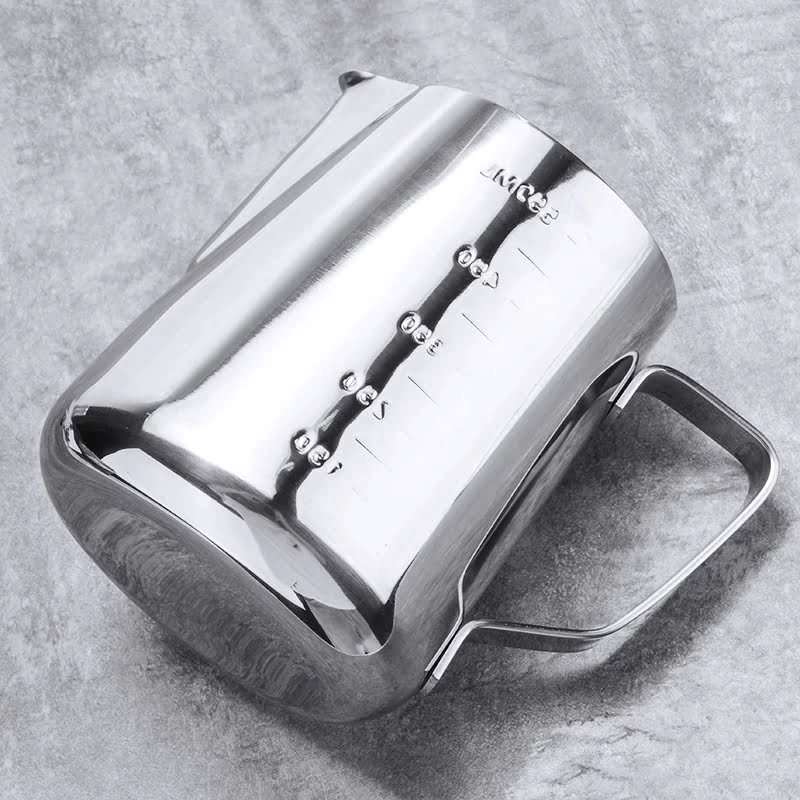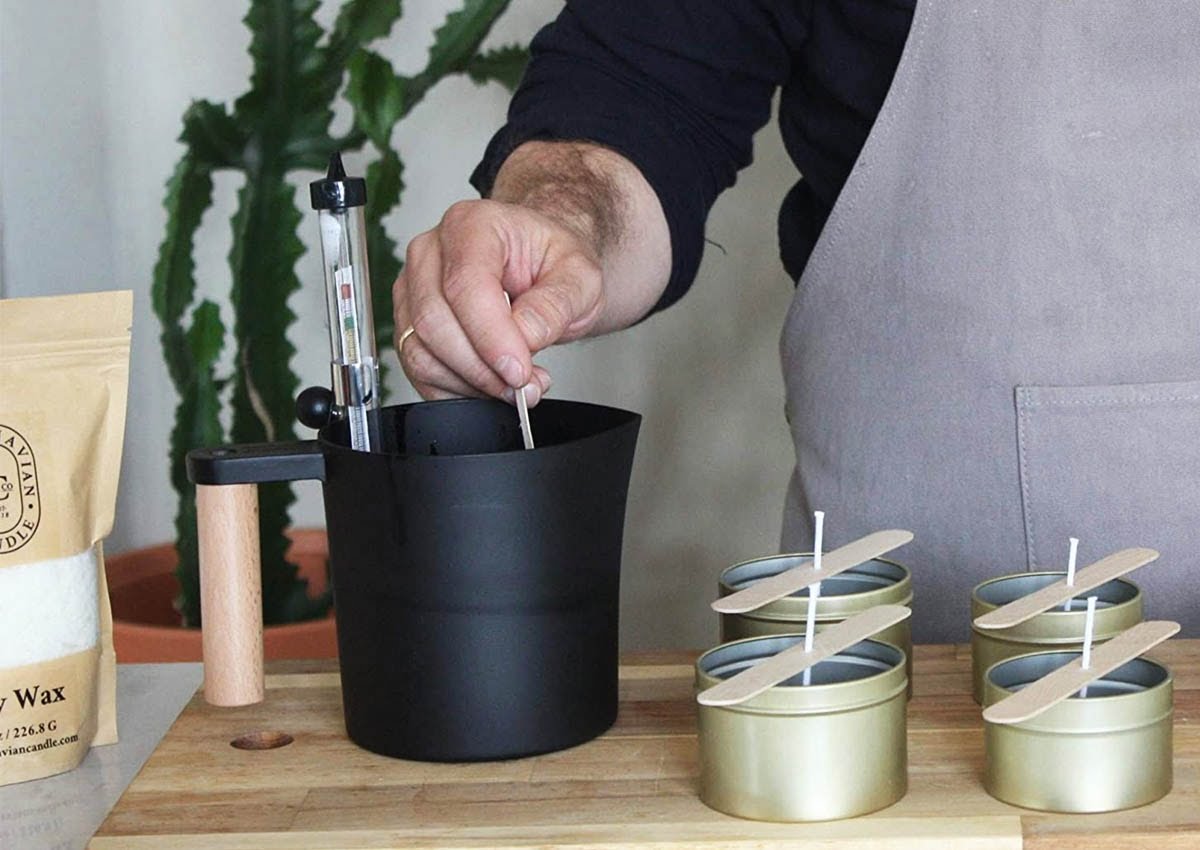Non-compete agreements play a crucial role in the candle making industry, serving as a vital tool to protect businesses from unfair competition and safeguard their intellectual property. These agreements are designed to prevent employees or business partners from engaging in similar candle making activities that could directly compete with their current employer or business. By establishing clear boundaries and restrictions, non-compete agreements help maintain the integrity and confidentiality of proprietary information within the industry.
For candle makers, understanding the intricacies of non-compete agreements is essential to ensure the long-term success and sustainability of their businesses. These agreements are especially important in a niche market like candle making where unique formulas, designs, and customer bases can easily be replicated by competitors.
By delineating specific restrictions on post-employment activities, such as starting a competing business or soliciting former clients, non-compete agreements provide an added layer of security for candle makers looking to protect their brand and innovations.
When crafting a strong non-compete agreement for the candle making industry, key elements must be carefully considered to make it legally enforceable. Factors such as duration, geographic scope, and specific prohibited activities should be clearly outlined to avoid any ambiguity or potential breaches.
Additionally, ensuring that the agreement is fair and reasonable for all parties involved is crucial in negotiations. As disputes regarding non-compete agreements continue to surface in the industry, staying informed about legal implications and best practices is imperative for candle makers seeking to safeguard their interests.
Importance of Non-Compete Agreements for Candle Makers
Non-compete agreements play a crucial role in the candle making industry, as they help protect valuable business assets and trade secrets. These agreements are essential for candle makers to prevent their employees, suppliers, or partners from starting a competing business or working for a rival company within a specified time frame and geographical area. By signing a non-compete agreement, candle makers can safeguard their unique formulas, designs, customer lists, and marketing strategies from being used by competitors.
One of the key reasons why non-compete agreements are significant for candle makers is that they can help maintain a competitive edge in the market. With the growing popularity of homemade candles and artisanal wax products, protecting intellectual property through non-compete agreements has become more critical than ever. By ensuring that employees or collaborators do not disclose sensitive information or join competing businesses, candle makers can preserve their market position and sustain customer loyalty.
In crafting a non-compete agreement specifically tailored to the candle making industry, there are several key elements that should be included. These may encompass details regarding the prohibited activities or industries post-employment, the duration of the restriction period, geographic limitations where competition is restricted, and any compensation provided in exchange for agreeing to the terms.
To ensure enforceability and clarity, it is advisable for candle makers to seek legal counsel when drafting these agreements to cover all relevant considerations effectively.
| Aspect | Importance |
|---|---|
| Protection of trade secrets | Crucial for preserving unique formulas and designs |
| Maintaining competitive edge | Helps sustain market position amidst increasing competition |
| Inclusion of key elements | Vital for enforceability and clarity of restrictions |
Key Elements to Include in a Non-Compete Agreement for Candle Making
Non-compete agreements are essential in the candle making industry to protect the intellectual property, trade secrets, and customer base of a business. When drafting a non-compete agreement for candle makers, there are several key elements that should be included to ensure its effectiveness and enforceability. Here are some of the crucial components to consider incorporating:
- Scope of restriction: Clearly define the activities or industries that the candle maker is restricted from engaging in during and after their employment with your company. This can include producing similar products, working for a competitor, or soliciting your clients.
- Duration of the non-compete: Specify the period for which the restriction will be in effect after the termination of employment. Common durations range from six months to two years, depending on industry standards and the extent of competitive threat.
- Geographic limitations: Determine the geographical area within which the non-compete agreement will apply. This could be limited to a specific city, state, region, or nationwide, based on your business’s reach and potential competitive threats.
Including these key elements in a non-compete agreement for candle makers can help protect your business’s interests and maintain a competitive edge in the market. By clearly outlining these restrictions and parameters, both parties involved can have a clear understanding of their rights and obligations regarding post-employment competition.
Moreover, it is advisable to consult with legal professionals specializing in employment law or contract law when drafting a non-compete agreement for candle making. Their expertise can help ensure that the agreement complies with relevant laws and regulations while also being fair and reasonable to both parties involved. Ultimately, having a well-crafted non-compete agreement in place can safeguard your business from potential risks and disputes related to competition in the industry.keyword: non compete agreement candle making.
Legal Implications of Violating a Non-Compete Agreement in Candle Making
Enforceability of Non-Compete Agreements
Non-compete agreements in the candle making industry, like any other sector, are legal contracts that restrict an individual from engaging in similar business activities within a specified time frame and geographic area after leaving their current employment. The enforceability of these agreements varies from state to state, with some jurisdictions having stricter regulations than others. In general, courts tend to uphold non-compete agreements if they are deemed reasonable in scope, duration, and geographic limitation.
Consequences of Breaching a Non-Compete Agreement
Violating a non-compete agreement in the candle making industry can have severe consequences for the party in breach. The repercussions may include legal action taken by the former employer to seek damages or injunctive relief to prevent further violations. Depending on the terms outlined in the agreement, the breaching party may be required to pay monetary damages or could be prohibited from engaging in candle making activities for a certain period.
Defenses Against Non-Compete Agreement Violations
If accused of breaching a non-compete agreement in the candle making industry, there are potential defenses that individuals can explore. These may include demonstrating that the agreement is overly broad or unreasonable in its restrictions, arguing that there was no legitimate business interest being protected by the agreement, or claiming that the employer breached the agreement first.
It is crucial for individuals facing allegations of violating a non-compete agreement to seek legal counsel to assess their options and potential defenses.
How to Negotiate a Fair Non-Compete Agreement as a Candle Maker
When entering into the candle making industry, negotiating a fair non-compete agreement is crucial to protect your business interests. A non-compete agreement is a legal document that prevents employees, contractors, or business partners from engaging in activities that may compete with your candle making business for a specified period of time and within a defined geographical area. As a candle maker, negotiating the terms of this agreement requires careful consideration and understanding of its implications.
Understanding Your Needs and Concerns
Before engaging in negotiations for a non-compete agreement, it is essential to identify your specific needs and concerns as a candle maker. Consider factors such as the unique processes or techniques used in your candle making business, the proprietary information or trade secrets you want to protect, and the potential impact of competitors gaining access to your customer base. Understanding what aspects of your business are most vulnerable will help you prioritize which restrictions to include in the agreement.
Seeking Legal Counsel
Given the complexity of non-compete agreements and the legal implications involved, it is advisable to seek guidance from an experienced attorney specializing in contract law or intellectual property rights. A legal expert can help you draft clear and enforceable terms within the agreement, ensuring that it aligns with relevant state laws and is tailored to address your specific concerns as a candle maker.
Having legal counsel present during negotiations can also provide you with valuable insights on what terms are reasonable and customary within the industry.
Finding Common Ground
Negotiating a fair non-compete agreement involves finding common ground between protecting your interests as a candle maker while also respecting the rights of employees or partners who may be subject to these restrictions. It is important to approach negotiations with transparency, clearly communicating your reasons for including certain restrictions and being open to feedback from the other party.
By fostering open communication and mutual understanding, you can increase the likelihood of reaching a fair compromise that benefits all parties involved in the candle making business ecosystem.
Case Studies of Non-Compete Agreement Disputes in the Candle Making Industry
Non-compete agreements are crucial for protecting candle makers from unfair competition and preserving their business interests. However, disputes can arise when these agreements are not properly negotiated or enforced. Here are some case studies highlighting real-life scenarios where non-compete agreements in the candle making industry have led to legal conflicts:
- Company A, a well-known candle manufacturer, hired a new employee who had previously worked for a competitor, Company B. The employee signed a non-compete agreement with Company B but failed to disclose this information to Company A.
Upon discovering this breach of contract, Company B sued both the employee and Company A for engaging in unfair competition. The case was eventually settled out of court, with Company A agreeing to pay damages to Company B for violating the non-compete agreement. - In another case, a small candle making business owner decided to expand her product line by introducing a new type of scented candles that were similar to those offered by a larger competitor in the market. The competitor claimed that this violated the non-compete agreement signed by the small business owner when she first entered the industry.
Despite arguing that her candles were distinct enough to not compete directly with the competitor’s products, the court ruled in favor of enforcing the non-compete agreement and prohibited the small business owner from selling the scented candles. - A freelance candle designer entered into a contract with a candle making company to exclusively provide her designs for their products for a period of two years. However, halfway through the contract term, the designer started collaborating with another competing company without notifying her original client. This breach of contract led to prolonged litigation between all parties involved, resulting in financial losses for both companies and damaging the designer’s reputation in the industry.
These case studies demonstrate that understanding and adhering to non-compete agreements is essential for professionals in the candle making industry to avoid costly legal battles and protect their businesses from unfair practices and competition. By carefully negotiating these agreements and seeking legal counsel when necessary, candle makers can ensure that their intellectual property rights are safeguarded while fostering healthy competition within the market.
- Always disclose any existing non-compete agreements before entering into new contracts or job positions
- Seek legal advice when unsure about whether certain activities may violate a non-compete agreement
- Consider alternative dispute resolution methods like mediation or arbitration to resolve conflicts related to non-compete agreements
Tips for Enforcing a Non-Compete Agreement in the Candle Making Business
Non-compete agreements in the candle making industry are crucial for protecting your business interests and unique creations. Enforcing these agreements is essential to prevent former employees or partners from using your proprietary information, trade secrets, or customer base to start a competing business. To ensure that your non-compete agreement holds up in court, you must follow specific tips for enforcing it effectively.
One tip for enforcing a non-compete agreement in the candle making business is to clearly outline the prohibited activities and scope of restriction in the agreement. Be specific about what actions are restricted, such as making similar products, selling to certain customers, or using confidential information for competitive purposes. By clearly defining these restrictions, you can make it easier to prove a violation if necessary.
Another important tip is to communicate with the departing employee or partner about the terms of the non-compete agreement before they leave your company. Ensure that they fully understand their obligations and responsibilities under the agreement. By having open and transparent communication about the non-compete agreement, you can reduce the likelihood of disputes or misunderstandings down the line.
Furthermore, regularly monitor and track compliance with the non-compete agreement after an employee or partner leaves your candle making business. Keep thorough records of any suspicious activities that may indicate a violation of the agreement. If you suspect a breach, seek legal counsel immediately to explore your options for enforcement and potential remedies. Proactive monitoring can help protect your business interests and uphold the integrity of your non-compete agreements.
| Tip | Explanation |
|---|---|
| Clearly Define Restrictions | Be specific about prohibited activities to make violations easier to prove. |
| Communicate Clearly | Ensure departing employees understand their obligations under the agreement. |
| Monitor Compliance | Regularly track activities to detect any breaches early on. |
Alternatives to Non-Compete Agreements for Candle Makers
Non-compete agreements have long been a common practice in the candle making industry, serving as a way to protect businesses from potential competition and safeguard their trade secrets. However, there are alternatives to consider for candle makers who may find these agreements restrictive or challenging to enforce. Exploring these alternatives can provide a more flexible approach while still addressing the need for protection in the industry.
One alternative to non-compete agreements for candle makers is the use of non-disclosure agreements (NDAs). While not explicitly preventing former employees or partners from starting a competing business, NDAs focus on protecting confidential information and trade secrets. This can be beneficial for candle makers who want to maintain relationships with employees or collaborators but still ensure that their intellectual property is secure.
Another option for candle makers looking for alternatives to non-compete agreements is utilizing non-solicitation agreements. These agreements specifically prohibit individuals from soliciting employees, clients, or suppliers of the business after leaving. By focusing on maintaining existing relationships rather than restricting competition, non-solicitation agreements can offer a middle ground that balances protection and flexibility in the candle making industry.
Overall, while non-compete agreements have their place in the candle making business, exploring alternative options such as NDAs and non-solicitation agreements can provide a more tailored approach to protecting intellectual property and relationships within the industry. Candle makers should carefully weigh the pros and cons of each option before deciding on the best strategy that aligns with their specific business needs and goals.
Frequently Asked Questions
What Voids a Noncompete Agreement?
Noncompete agreements can be voided for various reasons, including lack of consideration, unreasonable restrictions in time or geographical scope, violation of public policy, or if the agreement is overly broad. Courts may also consider factors like the employee’s role and the employer’s legitimate business interests.
How Do You Get Around a Non-Compete Clause?
Getting around a non-compete clause can be challenging but not impossible. One way to do this is by negotiating with your employer to modify or remove the restriction altogether. Seeking legal advice to challenge the validity of the agreement based on specific circumstances is another option. Sometimes finding loopholes in the contract terms can also help navigate around it.
Do Non-Compete Clauses Hold Up in Court?
The enforceability of non-compete clauses varies depending on state laws and specific circumstances surrounding each case. Generally, courts will consider factors like reasonableness of restrictions, legitimate business interests, impact on employees’ livelihoods, and public policy considerations when determining whether to uphold these agreements.
It ultimately comes down to how well the agreement is drafted and whether it meets legal standards in that jurisdiction.

Welcome to my candle making blog! In this blog, I will be sharing my tips and tricks for making candles. I will also be sharing some of my favorite recipes.





